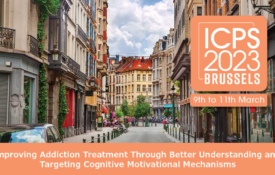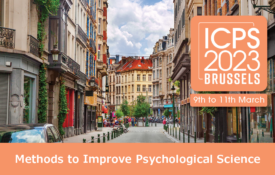-
A Personality Test Can’t Tell You Who You Are
Juanita Hernandez is a 25-year-old Miami-based anxiously attached Aries (Scorpio moon, Taurus rising), ENFJ, Enneagram Type Two. Until recently, she considered quality time her love language, but after listening to an episode of the podcast If Books Could Kill, she now thinks love languages are “kind of bullshit.” Her path toward inner omniscience first began with a foundation in astrology, which Hernandez says she discovered as a child. Then came Enneagram — a personality test labeling respondents with one of nine types — which predated learning her attachment style at the behest of her therapist. Later, she took the Myers-Briggs Type Indicator.
-

Bringing Contexts In, Taking Racism Out: How to Improve Cognitive Psychology
Podcast: How can researchers reshape cognitive psychology to become more aware of the roles of culture and context? Ayanna Thomas joins APS’s Ludmila Nunes to discuss scientific racism in cognitive psychology.
-

Future of Work
This symposium covers key issues associated with the “future of work,” including globalization and culture change, workplace technology, employee withdrawal/turnover, and virtual and remote work arrangements.
-

Improving Addiction Treatment Through Better Understanding and Targeting Cognitive Motivational Mechanisms
New training methods have been developed to improve addiction treatment. This symposium provides an overview of these developments and introduces new methods inspired by emerging insights into working mechanisms.
-

The Psychology of Anti-Science Beliefs and Attitudes
This symposium focuses on understanding the psychological underpinnings and consequences of these beliefs and attitudes. Speakers also examine the role of disinformation and conspiracy theories.
-

Methods to Improve Psychological Science
Over the past decade, a “crisis of confidence” has enveloped many empirical sciences including psychology. This symposium brings together scholars who have made prominent contributions to this emerging field.

